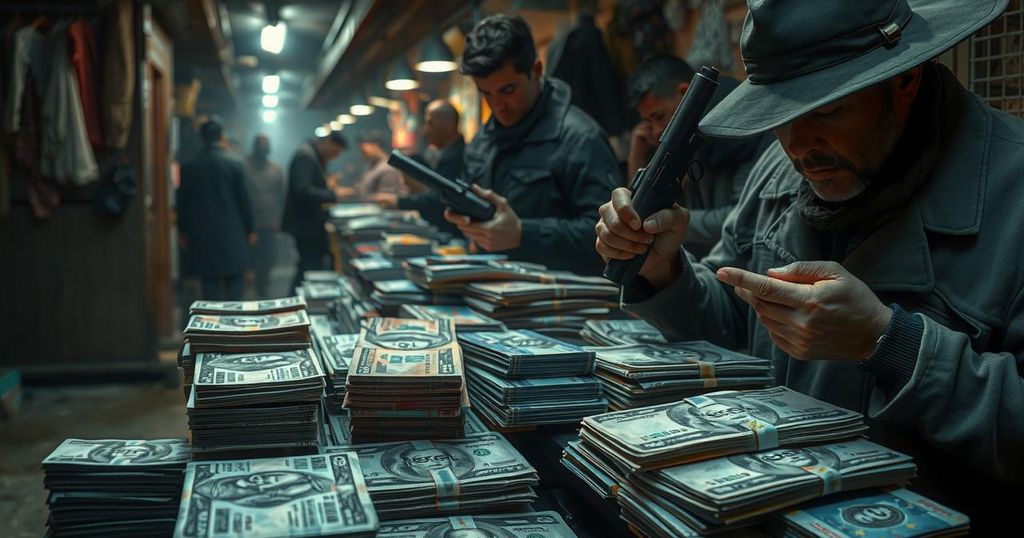North Korea Intensifies Sting Operations Against Illegal Currency Traders

North Korean authorities have intensified their crackdown on illegal foreign currency trading by employing sting operations. Collaborations between prosecutors and police have targeted unauthorized money changers, while the risks for individuals in this trade have increased. The actions have left many citizens disgruntled, as the need for private currency exchange persists despite the legal prohibitions.
The North Korean government has intensified efforts to combat unauthorized foreign currency trading through an increase in sting operations targeting offenders. A source from North Hamgyong province reveals that since early March, law enforcement in Hoeryong has collaborated to suppress private money exchange activities. In North Korea, currency exchange is limited to government-sanctioned locations, making private transactions illegal despite the presence of a lucrative black market.
As law enforcement tightens regulations, they have employed sting operations more frequently, utilizing informants to infiltrate money changers. These informants facilitate transactions, allowing authorities to arrest the offenders in the act. Although money changers are aware of these tactics, they often struggle to identify undercover agents, leaving them vulnerable to arrest.
On March 6, an incident in Hoeryong illustrates the risks for money changers: a woman, believing she was negotiating with a legitimate customer, was caught in a sting operation, losing 20,000 Chinese yuan (approximately $2,800). Despite her protests during her arrest, she was released after questioning but now faces future scrutiny from the authorities.
The crackdown has created significant discontent among North Koreans, particularly among those involved in currency trading. Many money changers express frustration at being treated like criminals for merely facilitating exchanges essential for survival. The source indicates that despite the illegality of their work, many feel compelled to continue as the government has failed to provide alternative avenues for income.
The heightened enforcement has further affected the dynamics of currency exchange, causing money changers to become more selective about their customers. This has led to dissatisfaction among ordinary citizens who rely on these services, exacerbating the challenges faced due to the government’s stringent policies on foreign currency transactions.
In conclusion, North Korean authorities are significantly ramping up their crackdown on illegal currency trading through the implementation of sting operations. The actions of law enforcement not only highlight the ongoing challenges related to unauthorized currency transactions but also illustrate the frustrations faced by money changers and citizens alike. The persistent demand for private money exchange services reflects the economic realities in North Korea, while the enforcement strategies employed by the government continue to complicate these transactions and foster resentment among the populace.
Original Source: www.dailynk.com







